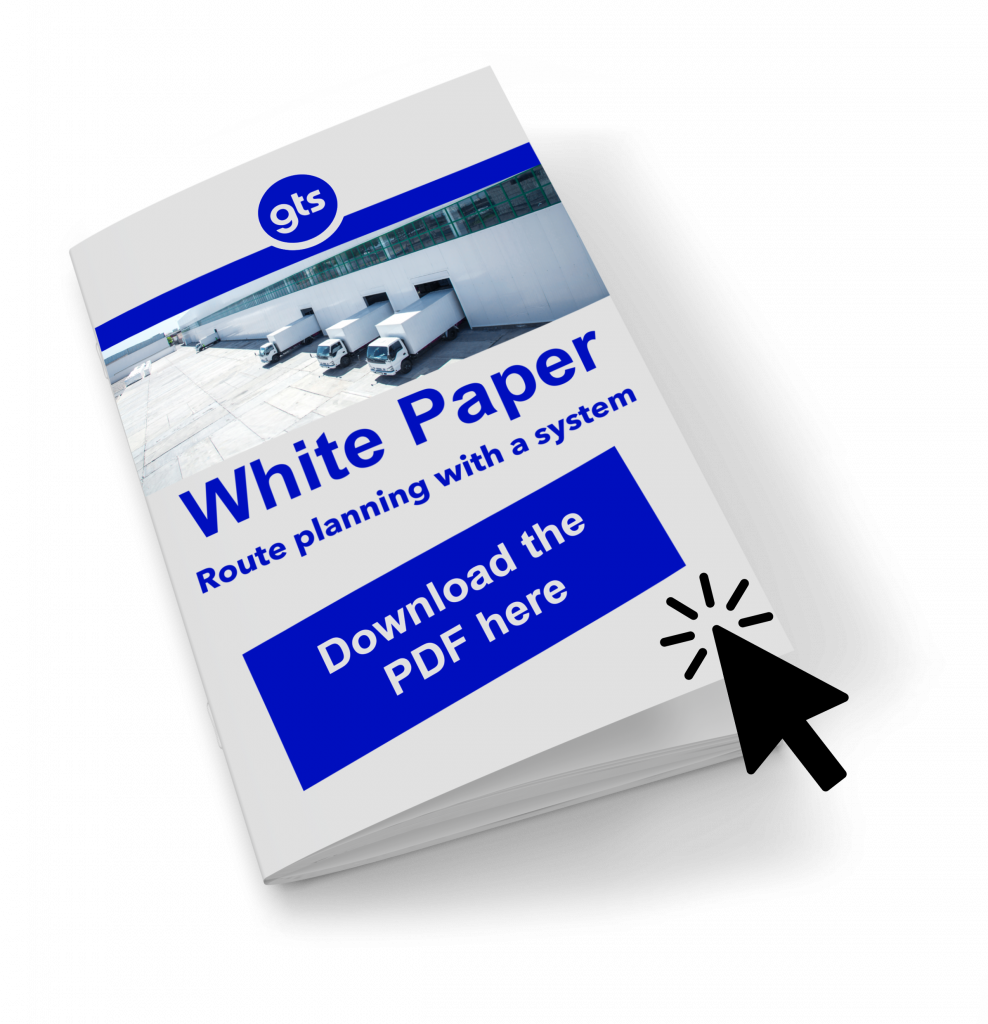
Photo: Hannes Egler
We have something against standing still.
The acute shortage of staff in the logistics industry is due not least to a lack of flexibility in the company. The demand for individualization of working hours, for example for childcare or caring for relatives, can be met with professional tour optimization. Planning tours with different durations and periods of use can be an efficient means of attracting and retaining employees.
Bei alle den Schwierigkeiten, die bei der Distribution von Waren zu beachten sind, ist die zur Verfügung stehende Arbeitszeit nur, nun ja, ein kleiner Aspekt. Sie ist festgelegt – im Unternehmen und im entsprechenden Gesetzestext.
Ein Mitarbeiter darf maximal 6 Stunden ohne Pause arbeiten, die tägliche Arbeitszeit darf in Summe im Mittel nicht mehr als 8 Stunden am Tag betragen und 2 aufeinanderfolgende Arbeitszeiten müssen mindestens durch eine zusammenhängende, 11-stündige Pause unterbrochen sein. Dazu kommen dutzende Ausnahmen für Fahrpersonal, medizinisches Personal und und und …
Staff shortages are becoming a problem
In many conversations with customers, we learn that a significant everyday problem is the lack of staff. Not only for vehicles that weigh over 3.5 tonnes and can therefore only be driven by a driver who has a class C / C1E driver's license and who has passed the regular tests for key number 95. Many of our customers also use sprinters, caddies or related vehicles, vehicles that are generally allowed to be driven by anyone with a driver's license.
A small approach: route planning allows more flexibility
The recruitment of employees depends more and more on so-called soft facts, i.e. decision-making criteria that are difficult to influence because they have to do with emotions and taste. Or with the respective life situation. How does someone behave who cannot or is not allowed to work 8 hours a day? How many of these people are not employed because of this? If you think about it, this group of potential employees is so large that it shouldn't be neglected.
When we plan tours for our customers, we usually do so with the absolute focus on efficiency. But we can plan tours with TransIT and give the customer exactly how long the tour duration should be. The separated father, who only wants to work 6 hours a day every two weeks so that he can take his child to kindergarten or school and pick it up again, can only work 30 hours a week every two weeks. These parameters for calculating the operating times are easy to calculate for a route planning software.
Photo: rawpixel
Our software ensures more flexibility in deployment planning.
Individualization and work-life balance
There is an ever increasing individualization of living conditions, but the employer can rarely react to it. People whose daily work is only forced because the living situation naturally requires an income should be able to offer an employment model that also gives them free time.
Wie wäre es mit 5 Mitarbeitern, die zwar den Job von Vieren machen, aber aufgrund der gewonnenen Flexibilität glücklich und zufrieden sind? Wie wäre es mit dem Frührentner oder der Frührentnerin, die nur vormittags von 9 – 12 Uhr arbeiten möchten, da sie ihren Partner pflegen müssen? Oder mit dem Studenten, der jeden Tag vor den Vorlesungen gerne noch 3 Stunden arbeiten würde? Wenn man die Arbeitskraft dieser Menschen gemäß ihrer Bedürfnisse einplant, entsteht trotzdem Produktivität. Das Brot, die Äpfel oder sonst irgendeine Ware kommen trotzdem dort an, wo sie hingehören: zum Kunden. Sicher ist es aus Unternehmenssicht nicht optimal, eine 160-Stunden-Kraft durch 3 Teilzeitkräfte zu ersetzen. Aber wenn ich die 160 Stunden sonst nicht mehr besetzen kann, meine Kunden aber (Dienst)Leistung fordern, gehe ich den Weg doch zu Ende.
Tailor-made deployment planning through route optimization
TransIT can be your means to achieve growth despite the lack of staff. Because with TransIT you can plan and optimize your tours so that your employees are deployed according to their own ideas. You simply enter the maximum operating times as a filter and the route planning software automatically schedules the driver according to these times.
The added value is obvious:
The company can grow in terms of recruitment despite difficult conditions.
The company takes care of long-term customer loyalty.
The company creates jobs for people in special life situations.
The company creates a positive public image.
Because the company acts in this way, it also binds full-time employees to itself for longer, and conflicts are not immediately sought out.
The company can promote employee satisfaction, react to temporary, individual living conditions and also publish this.

TransIT can be the means to
achieve growth despite the
lack of employees.
Holger Sacher




